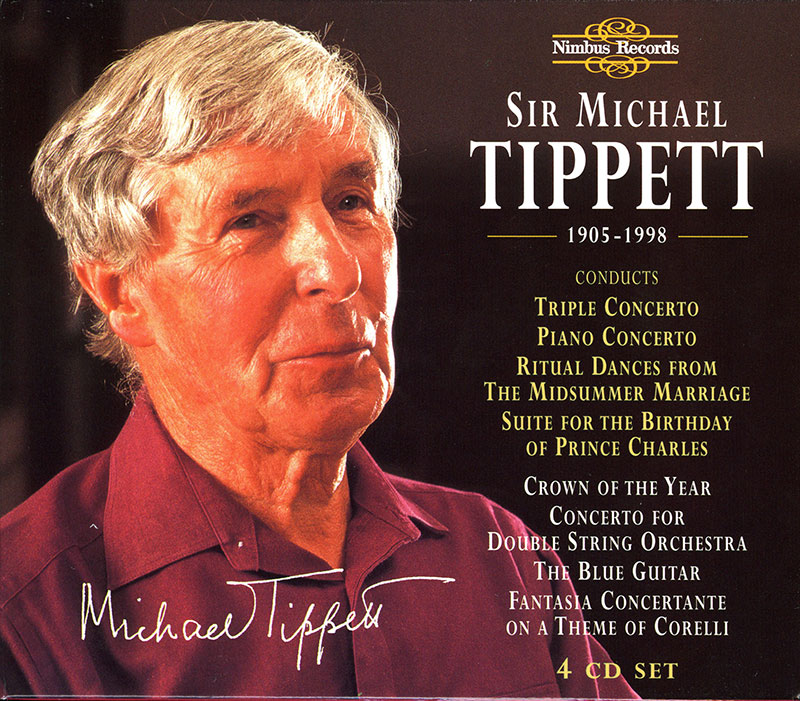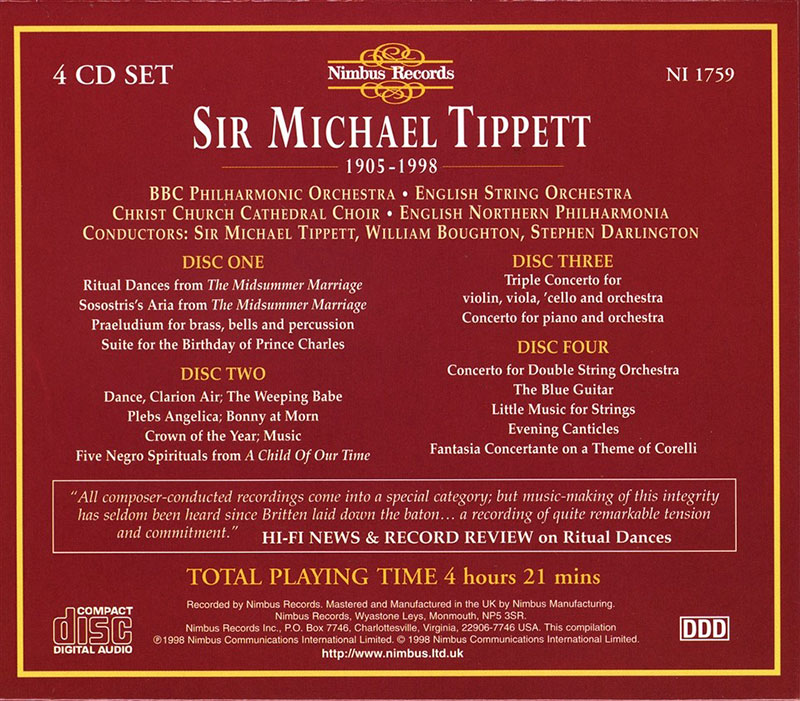Logowanie
Dziś nikt już tak genialnie nie jazzuje!
Bobby Hutcherson, Joe Sample
San Francisco
SHM-CD/SACD - NOWY FORMAT - DŻWIĘK TAK CZYSTY, JAK Z CZASU WIELKIEGO WYBUCHU!
Wayne Shorter, Freddie Hubbard, Herbie Hancock, Ron Carter, Elvin Jones
Speak no evil
UHQCD - dotknij Oryginału - MQA (Master Quality Authenticated)
Chesky! Niezmiennie perfekcyjny
Winylowy niezbędnik
ClearAudio
Double Matrix Professional - Sonic
najbardziej inteligentna i skuteczna pralka do płyt winylowych wszelkiego typu - całkowicie automatyczna
TIPPET, BBC Philharmonic Orchestra, English String Orchestra, Christ Church Cathedral Choir, Oxford, Stephen Darlington, Sir Michael Tippett
Sir Michael Tippett 1905-1998

- BBC Philharmonic Orchestra - orchestra
- English String Orchestra - orchestra
- Christ Church Cathedral Choir, Oxford - choir
- Stephen Darlington - conductor
- Sir Michael Tippett - conductor
- TIPPET
Reviews This disc brings together two substantial concertos. Each is in three movements though the Triple Concerto’s three are separated by two brief interludes. The late and lyrical Triple Concerto was premiered by Sir Colin Davis and the LSO at the Proms on 22 August 1980. This speaks of Tippett the musical Taliesin, spinning a diaphanous bejewelled cloak of quietly jangling bells - very much Prospero’s island. The middle movement is restful. The last is a torrent of orchestral colour and grandeur. Gamelan textures - more familiar in Britten - can be heard throughout. Tippett the alchemist here leans in absorption over the alembic of his orchestra and draws out singing tones and long yearning lines. The trio ‘sing’ their parts beautifully and their nostalgic slow theme vividly reminds me of a hand cutting lazily through sun-glittering water (tr.1 9:33). The instruments are in carolling dialogue but their relationship often strikes me as being in conflict as if they must hurt each other to achieve exaltation. After so many masterful moments am I alone in wondering at the unsatisfactory way the concerto ends? The Piano Concerto is much earlier (1955). It chimes into existence with a pearly gentleness; occasionally sounding like the John Ireland or Rubbra concertos. It does however rear up occasionally with overt heroism. It was intended for Julius Katchen who later withdrew. It was Louis Kentner who took his place at the premiere. This was given by the commissioning orchestra, the City of Birmingham Symphony. Beethoven’s Fourth Piano Concerto - a performance of it by Gieseking - formed the work’s inspirational ignition. It has not become popular. The concerto sports an occasional heroic approach. When in clamant dramatic mode Tippett seems startlingly Brahmsian. Occasionally I also thought of the leonine Medtner in his Third Piano Concerto. There is much glistening crystalline passage-work for the piano. Tirimo gives an impressive and emotional performance and is seemingly fully equal to the concerto’s challenges. The disc is complemented by an extensive note by Geraint Lewis. A unique and generous coupling of two contrasted works. Of the two it’s the magical Triple Concerto I shall return to most often. Rob Barnett, Musicweb-international.com on NI 5301 included in this box set Only Plebs angelica was specifically written for a cathedral choir, or, for that matter, boys's; voices, but there is no doubt that the Christ Church choir brings to much of this music exceptional precision and purity of tone. The two unison songs, Bonny at Morn (a gorgeous setting for voices against a fluttering trio of recorders) and Music, display a remarkable tautness of ensemble; Stephen Darlington draws from his singers some exquisitely shaped lines and a remarkable oneness of purpose. Crown of the Year was written for children's voices and is a setting of words by Christopher Fry originally intended for inclusion in the 1952 collection of madrigals by living British composers called A Garland for the Queen (from which Dance, Clarion Air comes). Thankfully Tippett delayed setting this text until 1958 when be could expand it into a cantata for voices, recorders, oboe, clarinet, trumpet, string quartet, percussion and piano. The result, as Geraint Lewis maintains in his most comprehensive note, "deserves to be much better known, representing as it does a bridge between the lyricism of The Midsummer Marriage and the rhetoric of King Priam". Here is a truly splendid performance with the choir and instrumental ensemble perfectly matched, and Martin Jones excelling in the virtuoso piano part. The recording, made in the Abbey at Dorchester-on-Thames, is simply outstanding. M.R., Gramophone on NI 5266 included in this box set


































